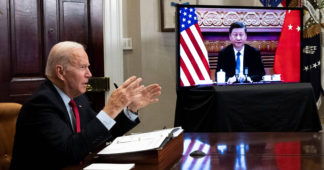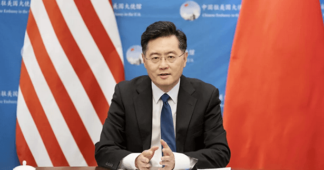By Mike Head
12 November 2021
Making his first speech at Australia’s National Press Club in 26 years, former Labor Party Prime Minister Paul Keating warned this week against the dangers for Australian capitalism of joining a US-led war against China, including over Taiwan.
Keating opposed the bipartisan line-up by Labor behind the Liberal-National Coalition government’s signing of September’s AUKUS (Australia-UK-US) agreement, pointing out that the pact openly signalled an aggressive drive to militarily contain and confront China.
The AUKUS focus on the provision of nuclear-powered, long-range attack submarines to Australia marked a naked shift to war preparations, Keating observed. The aim was to cut off China’s capacity to deploy its own naval vessels beyond its coastal waters in order to respond to a US attack.
Continue reading at www.wsws.org
Paul Keating’s Press Club speech raises important questions about Australia’s relationship with China
By Stan Grant
When Paul Keating speaks it pays to listen, especially when he speaks about the world and our place in it.
As prime minister he helped build the political architecture to meet what would be the defining challenge of the 21st century: the rise of China.
Despite what some of his detractors may say, he is not an apologist for Chinese authoritarianism but a cold-eyed realist about Chinese power and how it can be incorporated into a global political order.
Simply: Chinese engagement but not Chinese dominance.
The Keating prime ministership though was a different time. China still applied Deng Xiaoping’s dictum: hide your capabilities and bide your time. No longer.
Continue reading at www.abc.net.au
We remind our readers that publication of articles on our site does not mean that we agree with what is written. Our policy is to publish anything which we consider of interest, so as to assist our readers in forming their opinions. Sometimes we even publish articles with which we totally disagree, since we believe it is important for our readers to be informed on as wide a spectrum of views as possible.











